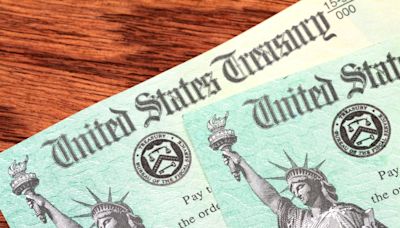Search results
- DictionaryMeas·ure·ment/ˈmeZHərm(ə)nt/
noun
- 1. the action of measuring something: "accurate measurement is essential"
People also ask
What does measurement mean?
What is measurement in physics?
What is a unit of measurement?
Why is measurement important?
The meaning of MEASUREMENT is the act or process of measuring. How to use measurement in a sentence. the act or process of measuring; a figure, extent, or amount obtained by measuring : dimension; measure…
- Overview
- Measurement instruments and systems
- Measurement theory
measurement, the process of associating numbers with physical quantities and phenomena. Measurement is fundamental to the sciences; to engineering, construction, and other technical fields; and to almost all everyday activities. For that reason the elements, conditions, limitations, and theoretical foundations of measurement have been much studied. See also measurement system for a comparison of different systems and the history of their development.
Measurements may be made by unaided human senses, in which case they are often called estimates, or, more commonly, by the use of instruments, which may range in complexity from simple rules for measuring lengths to highly sophisticated systems designed to detect and measure quantities entirely beyond the capabilities of the senses, such as radio waves from a distant star or the magnetic moment of a subatomic particle. (See instrumentation.)
Britannica Quiz
Fun Facts of Measurement & Math
In general, measuring systems comprise a number of functional elements. One element is required to discriminate the object and sense its dimensions or frequency. This information is then transmitted throughout the system by physical signals. If the object is itself active, such as water flow, it may power the signal; if passive, it must trigger the signal by interaction either with an energetic probe, such as a light source or X-ray tube, or with a carrier signal. Eventually the physical signal is compared with a reference signal of known quantity that has been subdivided or multiplied to suit the range of measurement required. The reference signal is derived from objects of known quantity by a process called calibration. The comparison may be an analog process in which signals in a continuous dimension are brought to equality. An alternative comparison process is quantization by counting, i.e., dividing the signal into parts of equal and known size and adding up the number of parts.
Other functions of measurement systems facilitate the basic process described above. Amplification ensures that the physical signal is strong enough to complete the measurement. In order to reduce degradation of the measurement as it progresses through the system, the signal may be converted to coded or digital form. Magnification, enlarging the measurement signal without increasing its power, is often necessary to match the output of one element of the system with the input of another, such as matching the size of the readout meter with the discerning power of the human eye.
One important type of measurement is the analysis of resonance, or the frequency of variation within a physical system. This is determined by harmonic analysis, commonly exhibited in the sorting of signals by a radio receiver. Computation is another important measurement process, in which measurement signals are manipulated mathematically, typically by some form of analog or digital computer. Computers may also provide a control function in monitoring system performance.
Are you a student? Get Britannica Premium for only 24.95 - a 67% discount!
Learn More
Measuring systems may also include devices for transmitting signals over great distances (see telemetry). All measuring systems, even highly automated ones, include some method of displaying the signal to an observer. Visual display systems may comprise a calibrated chart and a pointer, an integrated display on a cathode-ray tube, or a digital readout. Measurement systems often include elements for recording. A common type utilizes a writing stylus that records measurements on a moving chart. Electrical recorders may include feedback reading devices for greater accuracy.
Measurement theory is the study of how numbers are assigned to objects and phenomena, and its concerns include the kinds of things that can be measured, how different measures relate to each other, and the problem of error in the measurement process. Any general theory of measurement must come to grips with three basic problems: error; representation, which is the justification of number assignment; and uniqueness, which is the degree to which the kind of representation chosen approaches being the only one possible for the object or phenomenon in question.
Various systems of axioms, or basic rules and assumptions, have been formulated as a basis for measurement theory. Some of the most important types of axioms include axioms of order, axioms of extension, axioms of difference, axioms of conjointness, and axioms of geometry. Axioms of order ensure that the order imposed on objects by the assignment of numbers is the same order attained in actual observation or measurement. Axioms of extension deal with the representation of such attributes as time duration, length, and mass, which can be combined, or concatenated, for multiple objects exhibiting the attribute in question. Axioms of difference govern the measuring of intervals. Axioms of conjointness postulate that attributes that cannot be measured empirically (for example, loudness, intelligence, or hunger) can be measured by observing the way their component dimensions change in relation to each other. Axioms of geometry govern the representation of dimensionally complex attributes by pairs of numbers, triples of numbers, or even n-tuples of numbers.
The problem of error is one of the central concerns of measurement theory. At one time it was believed that errors of measurement could eventually be eliminated through the refinement of scientific principles and equipment. This belief is no longer held by most scientists, and almost all physical measurements reported today are accompanied by some indication of the limitation of accuracy or the probable degree of error. Among the various types of error that must be taken into account are errors of observation (which include instrumental errors, personal errors, systematic errors, and random errors), errors of sampling, and direct and indirect errors (in which one erroneous measurement is used in computing other measurements).
Measurement theory dates back to the 4th century bc, when a theory of magnitudes developed by the Greek mathematicians Eudoxus of Cnidus and Thaeatetus was included in Euclid’s Elements. The first systematic work on observational error was produced by the English mathematician Thomas Simpson in 1757, but the fundamental work on error theory was done by two 18th-century French astronomers, Joseph-Louis Lagrange and Pierre-Simon Laplace. The first attempt to incorporate measurement theory into the social sciences also occurred in the 18th century, when Jeremy Bentham, a British utilitarian moralist, attempted to create a theory for the measurement of value. Modern axiomatic theories of measurement derive from the work of two German scientists, Hermann von Helmholtz and Otto Hölder, and contemporary work on the application of measurement theory to psychology and economics derives in large part from the work of Oskar Morgenstern and John von Neumann.
- The Editors of Encyclopaedia Britannica
MEASUREMENT definition: 1. the act or process of measuring: 2. a value, discovered by measuring, that corresponds to the…. Learn more.
the act or process of measuring: The test is based on the measurement of blood levels. The machine makes thousands of measurements every day. B2 [ C ] a value, discovered by measuring, that corresponds to the size, shape, quality, etc. of something: The measurements of both rooms were identical.
Measurement is the quantification of attributes of an object or event, which can be used to compare with other objects or events. In other words, measurement is a process of determining how large or small a physical quantity is as compared to a basic reference quantity of the same kind.
noun. the act or process of measuring. an amount, extent, or size determined by measuring. a system of measures based on a particular standard. measurement. / mĕzh ′ ər-mənt /. A method of determining quantity, capacity, or dimension. Several systems of measurement exist, each one comprising units whose amounts have been arbitrarily set ...
/ˈmɛʒərmənt/ /ˈmɛʒəmənt/ IPA guide. Other forms: measurements. Taking a measurement involves figuring out how long something is or what it weighs or how fast it is. Measurements usually require something like a ruler or a stop watch. When you step on the scale to check your weight, you're getting a measurement.





